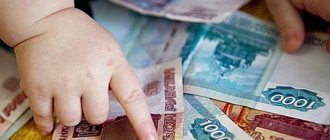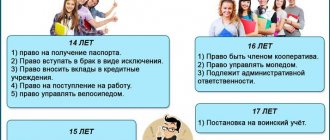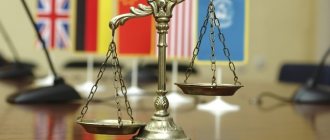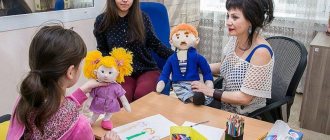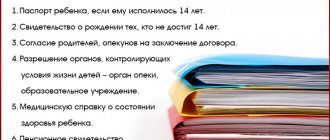What are a child, a young child and a parent?
Before considering the rights a child has, it is important to understand some concepts.
Child is a person under 18 years of age. You can learn more about this term by reading Article 54 of the RF IC.
A young child is one of the categories of legislation regarding children. This includes persons under the age of 14 years. Article 28 of the Civil Code of the Russian Federation considers the issue of young children in more detail.
Article 28 of the Civil Code of the Russian Federation
Important ! A parent is a person responsible for the care and care of a child. Similar requirements are prescribed by Article 38 of the Constitution of the Russian Federation.
In addition to the concepts listed above, others are used in life, not defined by law, but recognized by law enforcement practice. Among these concepts:
- single parent;
- legal representative;
- single mother, or lonely mother.
As for legislative acts that list the rights of the child, the following should be included.
- Declaration of the Rights of the Child. It sets out the principles that everyone who wants to ensure a happy childhood is encouraged to follow. There are 10 principles in total.
- Convention on the Rights of the Child. The document was adopted at the end of November 1989 and is still valid.
- Constitution of the Russian Federation.
- Family Code of the Russian Federation.
- Federal Laws numbered 124, 323, 273, 159, 181.
There is a convention on the rights of the child
Thus, everyone can freely familiarize themselves with the rights that any child has.
General provisions on the rights of the child and their protection
In the Russian Federation, children's rights and their protection are reflected and enshrined in many legislative sources at different levels, such as the UN Convention on the Rights of the Child, the Constitution of the Russian Federation, the Codes of the country, as well as in some Federal laws. The most extensive personal rights of a child in the family and society of the Russian Federation are outlined in the Family Code and Federal Law 124 “On the basic guarantees of the rights of the child in the Russian Federation.”
In the legislation of the Russian Federation, children are citizens who have not yet turned 18 years of age. That is, they have not reached their majority.
General provision of children's rights is carried out in the Russian Federation in accordance with Federal Law 124. According to this source of law, government bodies, officials of these institutions, parents and legal representatives, health workers, teachers, psychologists and other specialists involved in the upbringing, development or education of children must assist protection of their rights and interests.
The RF IC in Chapter 11 defines the rights of minor children. Family law regulates their capabilities and powers both in the family and in society in general.
What should you know about specific rights?
In addition to basic rights, the child also has specific ones, the classification of which implies their division into:
- suffrage;
- right to property;
- the right to live;
- right to family.
A child begins to have specific rights immediately from the moment of his birth. It is also worth noting that all of them are part of the general rights of the baby.
Important ! Each of the classifications, in turn, should be considered separately.
Every child has specific rights
Suffrage
In this case, we are talking about giving the child the right to choose. Parents, according to the requirements of this right, must provide their children with a choice, and also exercise it if necessary.
According to the law, there are three gradations of the age periods of children.
- up to 10 years;
- from 10 to 14 years;
- from 14 to 18 years old.
The first category includes children who are not yet able to make a meaningful choice of actions affecting the legal aspects of life.
Important ! In this case, parents or official representatives must provide the child with everything necessary, making choices regarding living conditions, upbringing and education for him.
Parents must fully provide for the child up to 10 years of age and make a choice regarding the place and living conditions, education for him
However, it is worth noting that when making a choice, one should be guided by the fact that its consequences are favorable for the further growth and development of the child.
When a child reaches the age of the second category, he already has a little idea about independently making a certain decision or action. The opinion of children aged 10 to 14 years is already taken into account in court, for example, when considering a case of parental divorce.
Important ! In this case, the child can influence the court’s decision on the choice of his place of residence.
Also, the opinion of a child whose age has reached the second category will be taken into account by social authorities in the event of guardianship registration by adoptive parents. If the minor shows reluctance to be in this family, the guardianship procedure will be interrupted.
The opinions of children from 10 to 14 years old are taken into account by the court and guardianship authorities
At the age of 14, a child has the full right to receive his own earnings. This is confirmed by legislation. Thus, a minor child can receive various scholarships or participate in easy paid work, receiving for this a certain amount, which he can subsequently dispose of at his own discretion.
From the age of 18, a child is considered an adult and acquires the rights of an adult. Children's rights expire at this age.
At the age of 18, children's rights cease
Right to property
The child also has the right to property as soon as he is born. However, at first this right is exercised with the help of parents or official representatives. There are several ways for a minor child to acquire property, and among them are the following.
- Receiving an inheritance. It’s interesting, but a baby who has not yet been born, but only a conceived one, can become an heir. When the moment approaches for a minor to inherit an inheritance, parents, guardians or other official representatives must prepare the necessary documents with a notary.
- Receiving property as a gift. In this case, documents are also drawn up with the help of the child’s parents or official representatives. A striking example is the purchase of an apartment by parents and the transfer of a certain share to their children. At the same time, a certificate confirming the joint residence of family members is also presented.
Even a newborn can receive an inheritance, property as a gift
- Privatization. The same example with an apartment, but this time the parents privatize it and transfer a certain share of the property to the child.
- Independent acquisition of property. This applies to cases when a child, upon reaching the age of 14, goes to work and receives certain money for it, which he subsequently spends on purchasing property.
In the case of real estate transactions, if a minor owner takes part in it, control over its implementation is exercised with the help of guardianship and trusteeship authorities. In addition, they guarantee the protection of the rights of the child.
Important ! It is the guardianship and trusteeship authorities that undertake to issue, if necessary, the required permission to conduct a certain transaction on behalf of a child under 18 years of age.
Guardianship and trusteeship authorities ensure that all the rights of the child are respected
To obtain such permission, you must write a corresponding application. As for drawing up the application, the document must include the following points.
| Data to be provided | Notes |
| Information about the authority to which the application is submitted | This information is written in the upper right corner. |
| Applicant details | Also written in the upper right corner. |
| Statement title | Indicated in the middle of the sheet. |
| Justification for the requirement | Represents the main part. In it, the applicant must indicate the property owned by the child, its estimated value and area. The document must also provide evidence that the transaction carried out with this property is acquired with a profit. |
| List of documents submitted along with the application | It is presented in the form of a list. |
| Date and signature of the person who wrote and executed the document |
Based on the application received, the relevant authorities make a decision to issue the necessary permit, thanks to which it will be possible to carry out the transaction. It is worth noting that it will not be possible to obtain permission if the authorities find out that the child’s situation may worsen after the transaction.
To obtain permission from the guardianship authorities, you need to write an application
Important ! The right to property is protected by documents such as the Family, Civil and Administrative Codes.
The right to live
First of all, it must be noted that this right is available not only to children, but to every person according to the Constitution. The law formally enshrines this right, and other legislative documents cannot contradict it.
Thanks to this right, the baby can live in peace, and no one has the right to deprive him of this life. Otherwise, the offender will face criminal punishment for the act committed.
When a child dies, the first step is to establish the cause of death. If experts find out that a crime was committed against the deceased or, conversely, inaction, then the search for the criminal begins.
Important ! As a result, the person who committed the crime must bear criminal liability.
Of course, every child has the right to life
In this case, the protection of this right is under the tutelage of the police, prosecutor's office, social services and the Criminal Code.
Right to family
Every child should have a family, and it is desirable that it be a complete one. Children need care and good upbringing, but there are often situations when children cannot live with their parents, and this is due to certain reasons.
The state has provided for this issue. In the event of the death of the parents or the deprivation of their parental rights, the child comes under the protection of the guardianship authorities. They, in turn, either arrange for guardianship of the child by his relatives, or transfer the baby to a special institution.
Every child has the right to a family
In the most extreme case, the child ends up in an orphanage, which can become either a temporary shelter or a permanent home for him.
Important ! If a child is transferred to an orphanage, his care falls on the shoulders of social authorities. They are also responsible for it.
The right to a family is protected by the Family Code and is also regulated by guardianship and trusteeship authorities.
The country's legislation closely monitors that children's rights are respected. Children are one of the most vulnerable categories in the country, and they need protection and support.
If for some reason the child does not have parents, he is transferred to an orphanage for upbringing.
For example, a child has the right to free travel on public transport. However, it is worth noting that this is only possible if the child is under 7 years old. Starting from the age of 10, the child can choose for himself which parent he wants to stay with if it comes to divorce.
Important ! At the age of 14, a child has every right to independently go to court, and he will be heard.
Basic rights of the child
The legislation establishes that all citizens have equal rights and responsibilities. A person's nationality and age do not matter.
For life, integrity and liberty
The right to life is the main right of any person. It appears from the moment of birth. The right to integrity is expressed in the prohibition of any harsh punishment, including physical torture and acts degrading human dignity. The concept of children's freedom comes down to the impossibility of turning a person into slavery. Relevant for adults and children of all ages.
For citizenship
Every child whose parents are Russian citizens automatically acquires Russian citizenship. The procedure for obtaining it for newborns is simplified as much as possible: it is necessary to present the parents’ passports and the baby’s birth certificate with the appropriate stamp to the regional department of the Federal Migration Service. Without such a mark, the teenager will not be able to receive a passport, and the family will not be able to receive maternity capital. These situations are regulated by the Citizenship Law adopted in 1991.
Live and be raised in a family
Family education of children is considered a priority. The best option would be biological parents. If they do not want to take care of the offspring or have died, everything possible must be done to preserve it with blood relatives. If this option is not possible, employees of the district guardianship department are obliged to take measures to place the minor in a family of citizens of the Russian Federation. Until people are found who want to take the ward into care, he is placed in a special organization.
Communicate with relatives
A minor has the right to communicate with all his relatives. Even the possible divorce of parents cannot prevent this. A woman and a man, when divorcing, often prohibit their offspring from communicating with a close relative. These actions are contrary to the law and the wishes of the child.
Only the court has the right to prohibit the opportunity to see relatives.
Get last name, first name, patronymic
Every person has this right. If the parents cannot agree on a name, the guardianship authorities are involved in the matter. If they are not registered in marriage, the woman can request a paternity procedure or leave the father's column blank. In this case, the mother's surname must be indicated. Patronymic according to the woman.
The patronymic and surname are given to a minor on the basis of a marriage certificate.
Express your own opinion
When a child reaches the age of ten, the law provides for the need to take into account his opinion. The implementation of this right is possible only in situations directly affecting the child.
Among them:
- deprivation or restriction of the rights of mom and dad;
- changing the personal data of a minor;
- family selection;
- restoration of parental rights.
The survey is carried out in court with a meeting and the participation of a social educator and a specialist from the guardianship department. The legal representative is allowed to be present only if he does not put pressure on the offspring.
For material support
Parents must provide the minor with a full standard of living. Having the essentials is a must. If parents refuse to provide for their children on their own, the legal representative must recover financial resources in court. The money is transferred to the guardian's account for the needs of the ward. Deprivation of rights does not allow the termination of financial support. In such a situation, guardians receive child support from the state.
Earn your own income
A minor has the right of ownership of the income he receives, property received by him as a gift or inheritance, as well as any other property acquired with his funds. Articles 26 and 28 of the Civil Code of the Russian Federation determine the right of a minor to dispose of property belonging to him. Article 37 of the Civil Code of the Russian Federation establishes the rules by which parental management of the offspring’s property is carried out.
Property
From birth, the baby is endowed with certain property rights. Children can accept gifts, inherit things, and do things with them. Alimony, which is transferred for the maintenance of the offspring, also belongs to him. Responsibility for spending them lies with the parent with whom the child remains. Parental responsibilities legally end when the child reaches 18 years of age.
On defense
Children need protection until they reach adulthood. As a rule, parents do this. If the relevant organization discovers that something threatens the baby’s health, this is reported to the relevant authority. This can be done by neighbors or employees of an educational institution. Next, measures are taken to protect it. The right to social protection of children comes down to the fact that every child should be in the conditions necessary for his spiritual, physical, mental and moral development.
For free access to information
A minor has the right to access any information appropriate to his age. Restrictions are imposed on information that is harmful to his psychological state: drinking alcohol, scenes of violence and abuse, texts of a terrorist and extremist nature, etc.
The installation of “parental controls” on a computer by legal representatives is not a violation of this right. In addition, it is advisable to regulate the time spent on social networks.
Confidentiality of correspondence, preservation of personal data
In accordance with current legislation, liability is imposed on the violator in case of encroachment on telephone conversations and correspondence of the ward. Access to this information is possible only by court order. The Federal Personal Data Law provides for the protection of this data. The Constitution enshrines freedom of personal and family life. Intervention by outsiders is only possible if a crime has been committed against a minor.
For education
Every minor has the right to receive free basic general education, technical or secondary vocational education. You can obtain a higher education by passing the necessary tests. Parents (guardians) are responsible for the fulfillment of this right. It is prohibited to charge money for enrollment. When receiving education, the health status of children must be taken into account. The transition to home schooling is possible with the conclusion of a psychological, medical and pedagogical commission.
For medical care
A minor has the right to use the most advanced technologies and receive modern medical services. Such medical care should be provided free of charge. Each child is assigned to a municipal or state clinic on a territorial basis. Specialists should provide free assistance. They also have the right to rehabilitation and disease prevention (sanitary treatment, health improvement and recreation).
Relaxation, creativity
The ward must be provided with cultural recreation appropriate to his age. If there are no funds to purchase a voucher to the camp, it is provided by social authorities upon the application of the legal representative. Regional organizations provide conditions for practicing art; training is free. Admission is until all places are filled. Children can visit the museum and exhibitions, provided that the declared program is appropriate for their age.
To the aid of the state
Children whose parents abandoned their upbringing and orphans are transferred to the guardianship authorities. Their main goal is to find the right candidate for the baby. The guardian has all the duties and rights of the blood family. At the same time, additional control is exercised over adoptive families. The health status of the ward is subject to annual monitoring. The disposition of the adopted person's property is reflected in the guardian's report.
Changing your first or last name
At the joint request of mom and dad, the child’s first and last name can be changed by the guardianship and trusteeship authorities, based on the interests of the child until he reaches 14 years of age. If the parents live separately, the one with whom the ward lives permanently has the right to request that he be assigned his surname, which the applicant has at the time of application. Based on the interests of the minor and only with his consent, the issue is resolved by the relevant authorities provided that he reaches the age of ten.
Use of parents' property
Parents do not have ownership rights to the child’s property, and the child does not have ownership rights to the parents’ property. Children and parents living together may own and use each other's property by mutual consent. In the event of the emergence of the right of common property of parents and children, their rights to ownership, disposal and use of common property are determined by civil law.
What to do if parents drink?
As already noted, it is not the state, but the parents of the child who should protect the rights and interests of the child. However, there are families in the country where children need to be protected from their own mothers and fathers who regularly show cruelty and violence towards their offspring.
In this case, experts recommend contacting social and pedagogical centers. In such centers, children who cannot fend for themselves are protected. Thus, if serious problems occur in the child’s family, for example, parents often drink and are alcoholics, the child can calmly contact the center and receive the necessary help.
A child may seek help if his parents, for example, drink regularly
Important ! Also, such centers are ready to help single mothers who do not want to lose parental rights, but are not able to cope with the problem on their own.
The time a child spends in the center ranges from several days to six months. Such a period is aimed at ensuring that the parent has time to admit his mistake and take the path of correction. If this does not happen, then after six months the child’s fate falls into the hands of the guardianship and trusteeship authorities, where a decision is made to return to the family or find new adoptive parents.
Important ! It is worth noting that the child in the center will also be under attention. Employees of such organizations will continue psychological work with the child, and will also help him with his studies and communication.
In special centers they work with children, help them develop, find a common language with their peers
What rights does a child have?The United Nations, in the Universal Declaration of Human Rights, has declared that children have the right to special protection, care and assistance, “the child, by reason of his physical and mental immaturity, requires special protection and care, including adequate legal protection, both before and after birth." (New York, November 20, 1989)
A child is every human being under 18 years of age. All children, whether born in or out of wedlock, should enjoy the same social protection. (Universal Declaration of Human Rights. Article 25)
Child's rights
The child has the right:
- The right to live. Right to a name.
- Right to citizenship.
- No discrimination.
- The right to freedom of conscience and religious beliefs.
- The right to live with parents.
- Right to work.
- The right to rest.
- The right to protection of life and health.
- Right to education.
- The right to freedom from slavery.
- Right to housing.
- Right to freedom of speech.
- Right to information.
- The right to enjoy cultural achievements.
- The right to start a family.
- The right to participate in scientific, technical and artistic creativity.
From birth
Having been born, the child acquires the right to citizenship, has legal capacity under civil law, has the right to a first name, patronymic, and last name; has the right to live and be raised in a family, to know his parents, to receive from them protection of his rights and legitimate interests. A bank account can be opened in the child's name.
From 1.5 years
A one and a half year old citizen has the right to attend a nursery.
From 3 years
A three-year-old citizen has the right to attend kindergarten
From 6 years
A six-year-old citizen has the right to:
- attend school (from 6 years and 6 months, in exceptional cases and at an earlier age);
- has the right to independently conclude: small household transactions
- transactions aimed at making a profit free of charge, which do not require notarization or state registration;
- transactions for the disposal of funds provided by a legal representative or with his consent, a third party for a specific purpose or for free disposal
- in the event of a violation of the rights and legitimate interests of a child, including in the event of non-fulfillment or improper fulfillment by parents (one of them) of the duties of raising, educating the child, or in the case of abuse of parental rights, the child has the right to independently apply for their protection to the guardianship and trusteeship authority.
From 10 years
Ten-year citizen:
- gives consent to change his first and (or) last name;
- gives consent to his adoption or placement in a foster family, or restoration of parental rights to his parents;
- expresses his opinion about which of his parents, after the divorce, he would like to live with;
- have the right to be heard in any judicial or administrative proceedings;
- can join children's public associations.
From 14 years old
Fourteen year old citizen:
- gives written consent to renounce Russian citizenship together with his parents;
- can choose a place of residence (with parental consent);
- has the right, with the consent of the parents, to enter into any transactions;
- has the right to independently manage his income, salary, stipend;
- exercise your copyrights as a result of your intellectual activity;
- make deposits in credit institutions and manage them;
- has the right to receive a passport;
- may be allowed to marry as an exception, taking into account special circumstances (in this case, full legal capacity occurs);
- It is allowed to enter work with the consent of one of the parents (legal representative) and the guardianship and trusteeship authority of students to perform light labor in their free time from school that does not harm his health and does not disrupt the learning process for no more than 24 hours a week;
- has the right to demand the cancellation of the adoption;
- can learn to drive a motorcycle;
- has the right to drive a bicycle when driving on the roads;
- subject to criminal liability for certain crimes (murder, robbery, theft, extortion and other crimes provided for by the Criminal Code of the Russian Federation);
- is subject to property liability for concluded transactions, as well as for property damage caused;
- may be expelled from school for violations.
- has the right to independently apply to the court for protection of rights in case of non-fulfillment or improper fulfillment by parents (one of them) of the duties of upbringing, education, or abuse of parental rights.
- has the right to change his name, which includes his surname, first name and (or) patronymic.
From 15 years old
- admission to work is allowed in case of receiving basic general education, or continuing to master the program of basic general education in a form of education other than full-time, or leaving a general education institution to perform light work that does not harm their health (shortened work week of 24 hours, other labor privileges)
- has the right to leave a general education institution until receiving basic general education with the consent of parents (legal representatives), the commission for minors and the protection of their rights and the local education authority
- It is permissible to exclude a student from an educational institution by decision of the governing body of the educational institution for repeated gross violations of the charter of the educational institution. Expulsion of a student from an educational institution is applied if educational measures have not produced results and the student’s continued stay in the educational institution has a negative impact on other students, violates their rights and the rights of employees of the educational institution, as well as the normal functioning of the educational institution
From 16 years old
A sixteen-year-old citizen has the right:
- has the right to marry with the permission of local governments if there are good reasons;
- unmarried minor parents, in the event of the birth of a child, when their paternity (maternity) is established, have the right to independently exercise parental rights;
- gets the opportunity to watch films with erotic content in cinemas, which have a ban: “Children under 16 years of age are not allowed”;
- may be declared, in accordance with the established legal procedure, fully capable (emancipation) if he works under an employment contract or is engaged in entrepreneurial activity
- may be a member of a cooperative, joint-stock company;
- has the right to drive a moped when driving on roads;
- has the right to learn to drive a car on the roads in the presence of an instructor;
- has the right to independently conclude an employment agreement (contract); at the same time, a number of benefits are maintained in accordance with labor law (shortened working week - no more than 35 hours, the duration of daily work cannot exceed 7 hours);
- subject to administrative liability for offenses
- bears criminal liability for any type of crime
From 17 years old
A seventeen-year-old citizen is subject to initial military registration (a registration certificate is issued).
From 18 years old
The citizen gains full legal capacity. Acquires any rights and imposes any obligations.
At what age does a person become able to independently exercise all his rights and bear responsibilities (i.e., acquire legal capacity)?
- Upon reaching adulthood, that is, upon reaching 18 years of age;
- in case of marriage before reaching 18 years of age; Moreover, if the marriage is dissolved, legal capacity is retained, but if the marriage is declared invalid, the court may recognize the former spouse as having lost full legal capacity.
- when a teenager who has reached the age of 16 is declared fully capable if he works under an employment contract or is engaged in entrepreneurial activity with the consent of his parents (in the Civil Code of the Russian Federation this is called “emancipation”).
In cases provided for by law, other age limits may be established for the independent or limited exercise of certain rights and the performance of certain responsibilities.
In all these cases, parents are not responsible for the obligations of the emancipated child, and the children themselves must be responsible for all their actions as if they were adults.
At what age does a child have the right to express his or her own opinion? Are authorities obliged to take this opinion into account?
There is no legal age limit. Thus, when resolving any issue in the family that affects his interests, the child has the right to express his opinion. They are obliged to listen to the child during judicial or administrative proceedings on issues that affect his interests. Moreover, if the child is 10 years old, his opinion is taken into account without fail. Moreover, changing the child’s first and last name, restoring the rights of a parent who has been deprived of parental rights, adoption, registration of the adoptive parent as the child’s parent, transfer of the child to a foster family are possible only with the consent of the child who is 10 years old. The Convention requires the State to grant the right to express their views to any child who is able to formulate their own views. These views should be given due weight in accordance with the age and maturity of the child .
Do parents have the right to represent the interests of their children if there are conflicts between the interests of the children and the parents?
No, they cannot, if the presence of such contradictions is established by the guardianship and trusteeship authorities. In this case, this body appoints a representative to protect the rights and interests of children.
How can a child's first and last name be changed?
If the child is under 16 years old, at the joint request of the parents with the consent of the child, the guardianship and trusteeship authority may allow the child’s name to be changed, as well as his surname to the surname of the other parent. If the second parent lives separately, the guardianship and trusteeship authority takes into account his opinion on this issue. If the whereabouts of the child is unknown or the parent is deprived of parental rights, take into account his opinion on this matter
At the joint request of the parents, until the child reaches the age of fourteen, the guardianship and trusteeship authority, based on the interests of the child, has the right to allow the child to change the name, as well as change the surname assigned to him to the surname of the other parent.
If the parents live separately and the parent with whom the child lives wants to assign his surname to him, the guardianship and trusteeship authority resolves this issue depending on the interests of the child and taking into account the opinion of the other parent. Taking into account the parent’s opinion is not necessary if it is impossible to establish his whereabouts, deprivation of his parental rights, recognition as incompetent, as well as in cases of parental evasion without good reason from raising and maintaining the child.
If a child is born from persons who are not married to each other, and paternity has not been legally established, the guardianship and trusteeship authority, based on the interests of the child, has the right to allow changing his surname to the surname of the mother, which she bears at the time of making such a request.
Changing the first and/or last name of a child who has reached the age of ten years can only be done with his consent.
Our address:
121596, Moscow, st. Tolbukhina, 11, building 2 tel./fax: 8-499-737-83-01, 8-985-782-28-28 lawyer Chernikov Viktor Nikolaevich tel. 8-916-347-60-60 - for media and public relations
Our blog on LiveJournal - pravoza21
Email:
Going to court
Previously, it was stipulated that from the age of fourteen a child can go to court and receive the necessary legal assistance if he needs to defend his own rights. Thus, he can not only file any application, but also get a lawyer if the matter is a court hearing.
Moreover, to confirm this right, the consent of the parents or official representatives of the child is not required at all.
If necessary, a child from 14 years of age can go to court and defend his right
Important ! If the child is not yet 14 years old, then with a written application he can apply to the guardianship and trusteeship authorities, where he will be provided with the necessary assistance and help in moving forward with the issue or dispute that has arisen.
At what age can you get paid for work done?
Independent labor activity of a person becomes possible for a child when he turns 16 years old. However, upon obtaining the consent of one of the parents or official representatives, an agreement between the employer and the child can be concluded even if the second one is over 14 years old at the time of conclusion.
It should be noted that it is prohibited to use child labor for:
- hard work;
- working in harmful or dangerous working conditions;
- underground and mining works;
- at work where it is harmful to health.
A minor has the right to work, but only in conditions that are not too difficult
Important ! It is also not recommended for a child to get a job if the schedule interferes with regular school attendance.
What to do if there are problems at school?
At school, children do not always manage to find friends in the team and establish relationships with teachers. There are often cases of conflicts arising from any of the existing parties, and in this case, experts recommend that the student contact a social teacher who works at the same school.
If you don’t want to do this, then there is another way out - you can contact the Commission on Minors’ Affairs.
Important ! Mostly, children or teenagers who have problems at school or other conflict situations turn to such an organization.
You can contact a social worker if problems arise at school.
Teen rights
Adolescents are children aged between 14 and 16 years. During this period they have additional rights. For example, a teenager has the right, with the consent of one of the parents:
- make transactions;
- earn your own money;
- dispose of the earnings received;
- join various associations.
However, in addition to rights, every person has responsibilities, and a teenager in this case is no exception.
Important ! The main responsibility of a 14-year-old child is to obtain a passport, which subsequently obliges the teenager to bear responsibility for his actions.
Teenagers have more rights
From the age of 16, boys and girls have the opportunity to emancipate through official employment or marriage.
Basic responsibilities of children
- According to the Constitution, children from the age of 6 are required to receive preschool and secondary education, that is, go to kindergarten or study at school. Moreover, they must strictly observe the discipline established within the walls of the educational institution.
- From the age of 8, children are required to adhere to the school charter and rules of behavior in society.
- A 14-year-old child is obliged to carry out instructions, according to the Labor Code of the Russian Federation, and also to comply with work regulations if he gets a job. In addition, he must adhere to the rules established by society and comply with the rules of the school in which he is studying.
- From the age of 17, boys are required to register with the military registration and enlistment office and become liable for military service.
Property rights and obligations of children under 18 years of age
Every child has the right to material and financial support from their parents, and this right applies to all children under the age of majority. At the same time, the child himself can also be the owner of any property or own a certain amount of money. However, the child will be able to dispose of his own property only if he is recognized as fully capable.
In addition to property rights, one can include the possibility of receiving half of the alimony received from one of the parents. However, this right does not apply to children who live with a financially secure parent.
The age at which a child can manage their own property is 14 years or more.
A child can dispose of his own property from the age of 14
Important ! It is worth noting that minor children have the same right to claim their parent’s property as they do to receive their child’s property.
The right to own income and means of subsistence
The rights of a child in the family presuppose the presence and ability to use their own income and the necessary means for subsistence.
Necessary means of subsistence are objects, food, clothing and other material assets that children need for life, education and development. According to Art. 80 of the RF IC, parents are obliged to support their own child, choosing the form and procedure for such support independently.
If a child receives alimony from one of the parents, then the other adult raising him has the right to dispose of the benefits received in the interests of the minor. For example, funds can be spent on the upbringing, education and development of a son/daughter. The same goes for pensions and social security. payments in complete and single-parent families.
At the request of an adult, the court may establish a mandatory transfer of no more than 50 percent of the paid alimony to a bank account opened in the name of a minor.
By own income, the legislator means cash, property or other material assets earned by the child personally, gifted to him or inherited. Children can use and manage such things and objects independently.
A child has the right to the property of his parents, but his parents do not have the right to his property. Living together, they can use and own each other's things by mutual consent.
In general, such rights of a child in the family are called property rights and they are spelled out in Article 60 of the RF IC. And in the case of the right of common property of adults and children, as well as when exercising the powers of parents to manage the property of minors in terms of ownership, disposal and use of them, it is worth turning to the Civil Code of the Russian Federation.
What rights do children recognized as disabled have?
The fundamental right of disabled children is to receive state support, regardless of the sphere of life. This right is explained by the fact that people with disabilities need regular care and special conditions in order to maintain their lives in order and feel safe.
Also, disabled children have rights to various benefits for:
- medical care;
- sanatorium treatment;
- insurance;
- additional financial support.
Disabled children have certain benefits and are provided with assistance from the state
Important ! Legislation tries to support people with disabilities by providing them with various benefits and opportunities. For example, a disabled child may qualify for permanent home schooling if he is unable to attend school.
What rights can a child in a foster family claim?
In case of adoption, the baby is officially equated to a blood relative of the adoptive parents, therefore he is entitled to all the rights and obligations established by law that every child in the family has.
In addition, an adopted child has the right to communicate with his relatives if the biological father and mother are deceased. It is also worth noting that upon reaching the age of 10, the child can independently decide to change his own name and choose a family.
An adopted child is considered a blood relative.
Important ! If the child was under the guardianship and trusteeship of other persons, but was not adopted, then he also receives all the rights that children in the family have. And he, too, can communicate with his relatives and decide whether to change or leave his name.
In addition to the listed rights, an adopted child also has the opportunity to receive a survivor's pension if this fact was established before the adoption. In this case, the money is the personal property of the child.
If a child’s rights are violated in a foster family, he can file a complaint with the relevant authorities and receive the necessary support.
If the rights of a child in a foster family are violated, he can seek help from the guardianship authorities
Norms of the Constitution of the Russian Federation
The Basic Law of our country also covers the rights of the child in the Russian Federation, enshrining them from the moment of his birth. From this position, the Constitution also protects minor Russians.
Let's consider what the basic rights of the child are according to the Russian Constitution:
- to liberty and security of person;
- to protect the dignity of the individual;
- on integrity (in all its aspects);
- on language and nationality;
- to freedom of thought, speech, creativity;
- for peaceful associations;
- for free work and rest;
- for housing;
- for medical care and education.
Many provisions overlap with the international Convention.
What is the responsibility for violating the rights of a child?
A frequent problem is violence in the family, in which the rights of the child are either infringed or not taken into account at all. For example, during the process of growth, a child may not receive proper education and attention, and may also suffer from inappropriate behavior of the mother or father.
In this case, responsibility for violating the rights of a minor is established at the legislative level, and the punishment is determined depending on how serious the offense was.
Punishment for violating children's rights
Important ! If a parent or official representative of a child violates his rights regarding his maintenance, upbringing or protection of interests, then the first punishment will be a warning or a fine of up to 500 rubles.
If a child is restricted from communicating with relatives, parents or guardians will be punished with a fine of 2 to 3 thousand rubles. In case of repeated violation, the amount of the fine may increase to 5 thousand rubles, and there may also be an additional punishment in the form of arrest for up to 5 days.
The Criminal Code also provides for more severe penalties if the rights of a child are violated and his interests are infringed. So, for example, if a crime has been committed against a child, the perpetrator may be punished with imprisonment for up to 5 years or more.
If a crime has been committed against a child, even imprisonment is possible - it all depends on the severity of the offense
Important ! Additionally, it is worth noting the punishment for regularly involving a child in the use of alcohol, drugs, as well as involving him in vagrancy or begging; an adult can be imprisoned for up to 4 years. The punishment will be more severe if the culprit is the child’s parent or teacher.
The right to express one's own opinion
Article 57 of the RF IC describes the child’s right to express his own opinion. According to this decree, children can express, orally, in writing or in any other form accessible to them, personal thoughts on any issue that affects their interests.
The rights of the child also include the fact that their opinion can be heard and taken into account by the court during various types of meetings. As soon as a minor turns 10 years old, his position must be taken into account. Except in cases where the interests of the child are violated.
In particular, the court or guardianship authorities can make decisions only with the consent of children over 10 years old in the following matters:
- change of first/last name;
- restoration of parental rights;
- adoption;
- changing the full name of the adopted child when registering or canceling the adoption;
- records of the adoptive family as mother and (or) father;
- appointment of a guardian for the child.
The rights of children in the family and society to express their own opinions according to the UN Convention are given to the child regardless of his age. Children are considered to have the right to speak out on matters affecting their interests from the moment they are able to formulate their thoughts.
What does the expert think?
A child is always considered the weaker party when it comes to civil matters. This is explained by the fact that he is not able to fully understand the consequences of the decisions made, as well as understand the rights that he has. Basically, most of the rights and responsibilities of a child are assigned to the parents or his guardians, but with age he has rights that he can exercise independently, and he should be informed about this in advance.
For example, not every child knows that from 6 to 14 years old he can make small purchases, and at 10 years old he can express his own opinion in court when his parents divorce or register guardianship. The state must protect the rights of its young citizens, and therefore many Codes and other legislative documents contain articles devoted to the rights and responsibilities of children. As for the Criminal Code, it also provides penalties for violations of these rights.
Another confirmation of the importance of respecting children’s rights is the presence of a commission on juvenile affairs. With their help, it is possible to change the lives of adolescents for the better, protecting them from conflicts or actions unfavorable to society.
Other rights of children
Thus, the RF IC is a kind of reminder for parents. The rights of the child in the family are highlighted here for greater clarity in a separate chapter.
But in addition to the basic powers of the child prescribed in the code, minors have rights enshrined in other legal sources, for example, the opportunity to develop comprehensively, free school and preschool education, and receive medical care. Children can receive various types of benefits from the state. They, like any adult citizen, also have the right to respect for human dignity.
And also the rights of a child in the family presuppose the unhindered receipt and possession of information about who his parents are, in accordance with the UN Convention. The exception is some cases, for example, when children were born through artificial insemination, using biological material from a special bank.
It is worth noting that the rights of a child in a foster family are no different from those granted to a child living with relatives.
Parents in such a family, in relation to the child adopted for upbringing, perform the duties of a guardian or trustee, have his rights and are responsible for failure to perform or improper performance of the functions assigned to them in the manner established by federal law and treaty.
The modern family and the rights of the child are inextricably linked concepts, since the family is the natural habitat of children, and currently the law is very attentive to minors as the future of the country. They spend most of their time within the walls of their home, receiving education and support from their own parents. But in connection with individual cases where there are unscrupulous adults who improperly perform their duties, expose a child to danger, and sometimes openly mock him, the law must not only prescribe and regulate the relationships that arise in a given unit of society, but also purposefully protect the interests of minors - those citizens of the country who, due to their age, are weak, more vulnerable and often unable to defend their interests.
